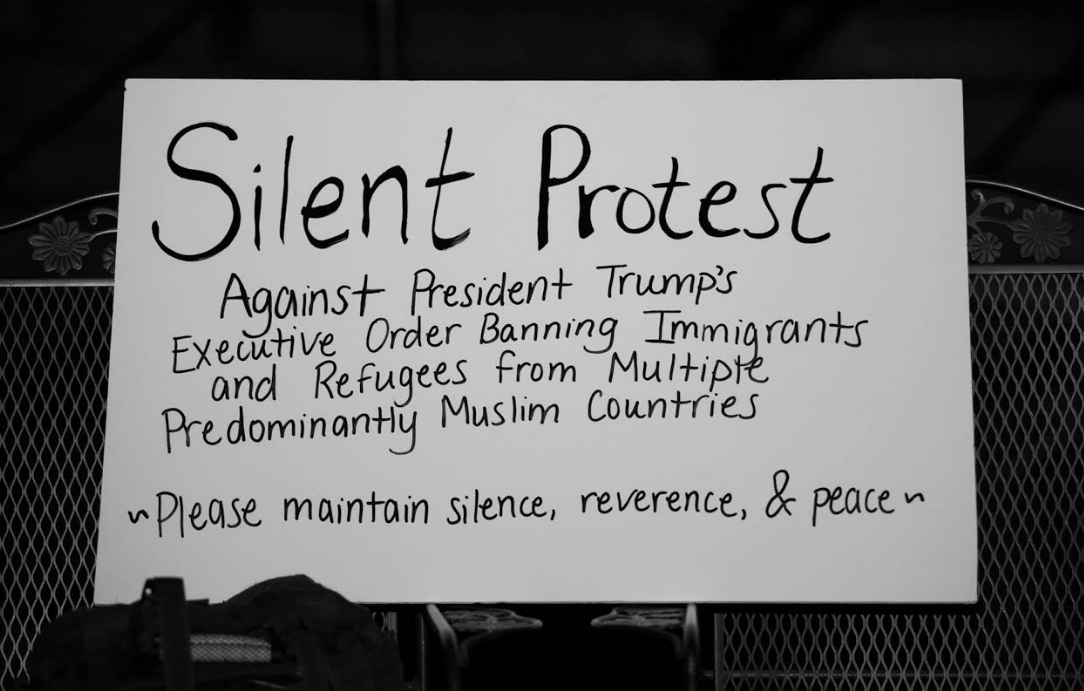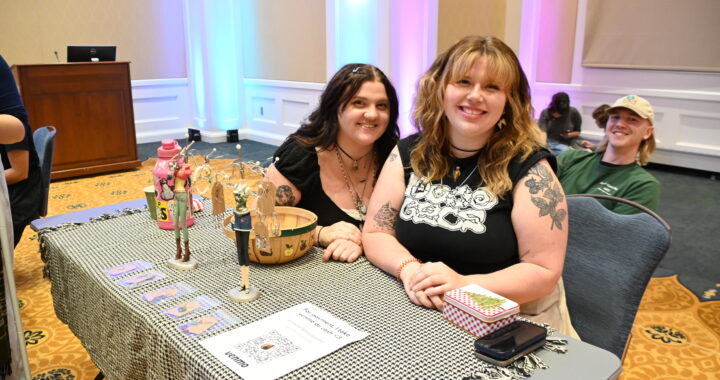Muslim professor at UMW feels direct affects of Trump’s travel ban, tells his story
3 min read
Alex Sakes | The Blue & Gray Press
By NATALIE BEYER
In January, when Professor Mehdi Aminrazavi marched with hundreds of thousands of women, men and children on Washington, he had no idea that just six days later things would get much worse for his family and him. The spirit of resistance from the momentous march dissolved into utter silence for Aminrazavi, as the Muslim ban was met with quiet complacency on the campus front.
Elsewhere, protests broke out at major airports and across college campuses, including UC Berkeley, which soon turned violent. Though Aminrazavi condemned the violence, he wondered why there was no unrest at Mary Washington, a university that boasts a policy of diversity and inclusion.
A Muslim professor that has been teaching at UMW since 1990, Aminrazavi has always strived to combat hatred with education, which is why in December 2016, he proposed three new courses about the study of Islam to the Religion and Philosophy department.
The proposed courses include: Philosophy 353 Islamic Philosophy and Theology, Religion 253 Muhammad and the Qur’an and Religion 252 Religion and Politics in Islam. In previous semesters, the Religion and Philosophy departments have only offered introductory courses on the religion, but these additions will provide much more insight into the faith’s historical and ideological roots.
The Chair of the Curriculum Committee, Surupa Gupta, and the Department Chair, Craig Vasey, approved the course proposals on Jan. 23. These new Religion/Philosophy courses will be offered in the fall semester at the 300 and 400 level.
Since the November presidential election of Donald Trump, Muslim communities within the United States have felt increased anxiety as numerous administrative policies have directly targeted the religion. Aminrazavi believes that this general mistrust of the nation of Islam has stemmed from the misrepresentation of the faith as a whole.
“I’ve been teaching Islamic studies for a long time and this situation with Islam in the West in general and America in particular goes from bad to worse,” he said. “First of all, this is the religion of one-fourth of the population, one out of every fourth person that walks on this planet is a Muslim. And unfortunately, the religion has been introduced to Westerners and Americans primarily from a political perspective, as if Islam is a political party.”
More recently, an executive order called, “Protecting the Nation from Foreign Terrorist Entry into the United States” was instated on Jan. 27, banning entry from seven predominantly Muslim countries including: Iran, Iraq, Libya, Somalia, Sudan, Syria and Yemen. This was also in addition to the indefinite suspension of the Syrian refugee program.
Syria, being another densely populated Muslim country in the Middle East. The travel ban incited widespread protests at our nation’s major airports such as LAX and JFK. Aminrazavi, as well as his family living in Iran have all been personally affected by the ban. The professor said, “My mother and sisters usually come to the United States to visit us.
In fact, they planned on coming in March, late March, but they had to cancel it because they cannot come. And Iran has reciprocated, so they will not let Americans to go and I, as a Unites States citizen, cannot go back. So, they can’t come here, I can’t go back and we don’t know when we will ever see each other again.”
However, Aminrazavi specified that his story was not unlike many others in the Muslim communities and countries in the Middle East. “There are thousands and thousands of people like me,” he said, even going further to share another story of a Muslim family in Reston, Virginia who had experienced an even more upsetting encounter with the ban.
“Her father passed away in Iran, so she left her two kids with the husband, went there for the funeral, and now is stuck, can’t come back. And so, the husband is here with two kids who can’t see their mother.” He shook his head sadly before he added, “Lots of cases like that, I know several of them.”
As for the new addition of religion courses, it is unclear whether or not they will be in high demand among students, but Aminrazavi hopes that education will inspire more public outcry and support for the Muslim community on campus.
“I think it is time for students to get involved,” Aminrazavi said. “Everybody has to get involved. Resistance is a major, major, moral duty. Anyone for any reason, whether they are religious or not religious, they all have to put up a fight.”


